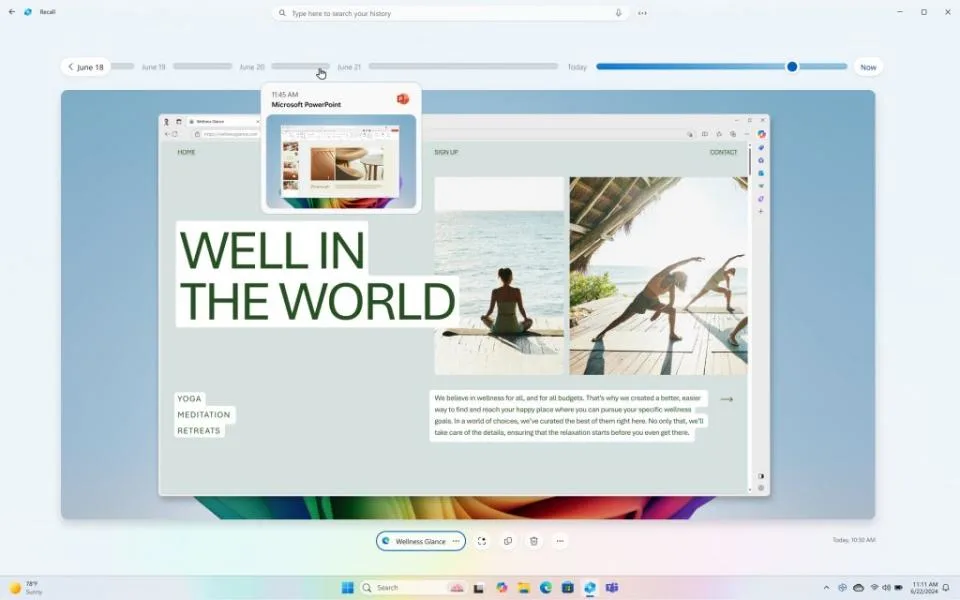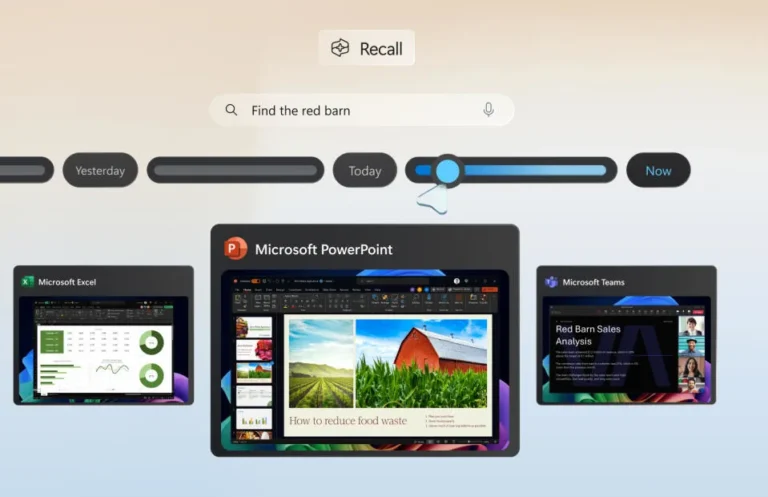One version of the AI timeline that is more secure will be available for Windows Insiders to test out on their Copilot+ computers.
A new release date has been announced for the Windows Insiders version of Microsoft’s Windows Recall feature, which is designed to preserve a chronology of activity snapshots on your personal computer. It was announced by Microsoft in May with a great deal of enthusiasm, but a few weeks later, the company decided to postpone the feature indefinitely (in response to criticism from security researchers). The business announced on Wednesday that it will release Recall to beta testers using Copilot+ PCs in October. This announcement comes after the company took some time to recalibrate.
In Windows Recall, snapshots of everything you do on your personal computer are stored. The program was developed to serve as a “photographic memory” for your computer activities, allowing you to review things such as products, emails, papers, or discussions that are displayed on your screen. Those who spend a significant amount of time on their personal computer (or those who have hazy memory) are likely to recognize the benefits that this tool offers.
On the other hand, if you think it sounds like a nightmare for your privacy, security researchers also thought that way. Experts in cybersecurity and privacy have raised concerns, despite the fact that Microsoft issued assurances regarding the safety of the product during its announcement at Build 2024. The fundamental issue was that unauthorized users would not only be able to obtain goodies from your conventional file system if they gained access to your personal computer. In addition, they have the ability to view anything that you have done on your computer from the moment that you enabled Recall to the present today. It is due to the fact that Microsoft, for reasons that we are unable to fully grasp (other than the need to incorporate artificial intelligence into everything as rapidly as possible), did not encrypt the data of Recall.
According to the information provided by Kevin Beaumont, a security expert, Recall did not conceal personally identifiable information such as passwords or banking credentials. Without a doubt, your timeline was secure in theory so long as no one was able to access your personal computer. In contrast, if you were to inadvertently install malware or allow an intruder to get access to your system through other ways, they would discover a treasure trove of sensitive data that is not encrypted.

After receiving a lot of negative feedback, Microsoft decided to implement some security features that were so obvious that we couldn’t help but wonder why they weren’t included in the first place. Again, it is difficult to discern the firm’s reasons for excluding that functionality when it was released; the only thing that can be speculated about is that the company chose to prioritize a seamless user experience over strong security.
During the process of setting up a Copilot+ PC, these security changes included making the feature not activated by default but rather requiring the user to opt in. Furthermore, Microsoft stated that the feature will necessitate the use of Windows Hello, which is a face or fingerprint scan, and the implementation of “just in time” decryption, which is only accessible through the use of Hello. In the event that a hacker is able to obtain access to your computer, the chronology of your screenshots should continue to be encrypted unless you provide your face or finger to unlock it (or unless they find a way to circumvent Hello’s encryption).
A fresh blog post will be published by Microsoft when the functionality is made accessible to Windows 11 Insider Program users in October, according to the company’s current announcement. For this capability to be available, a CoPilot+ PC, the first of which was released in June, must be equipped with a chip that is compatible. The Snapdragon X Plus and Snapdragon X Elite chips manufactured by Qualcomm are included on this list of chips. However, it is possible that Intel will have its first CoPilot+ chips available for use when the feature is ultimately released in preview form.

